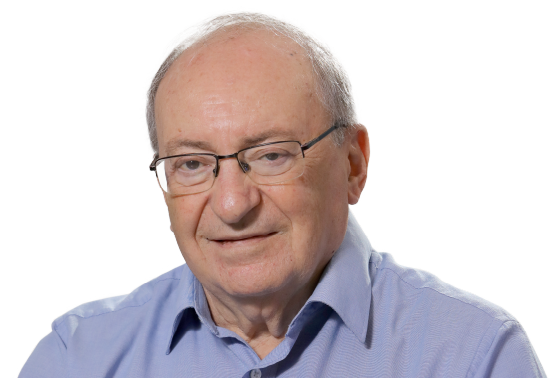CV
Zvi Magen joined the INSS research staff following a long career in Israel's Foreign Service. From 1993-1997 he served as Israel's ambassador to the Ukraine, and in 1998-1999 he served as Israel's ambassador to Russia. In the years 1999-2006 he served as head of the "Nativ" organization (the Prime Minister's Office liaison group for the FSU and Jewish diaspora affairs), and in 2006-2009 he was head of the Institute for Eurasian Studies at the Interdisciplinary Center in Herzliya. Ambassador Magen served in IDF Military Intelligence, completing his service with the rank of lieutenant colonel.

Zvi Magen
Senior Researcher (Emeritus)
zvim@inss.org.il
03-640-0468052-622-7159
Publications
All PublicationsThe Russia-Ukraine War: Where Do We Go from Here?
Two months after the start of Russia’s invasion of Ukraine, the goal of a short campaign has clearly not been achieved. Russia now seeks to achieve gains while suspending the negotiations with Kyiv – both to improve its position in advance of future negotiations, and to deliver the message to the West that “you cannot stop us.”
26 April, 2022The Ukrainian Civil Front – An Interim Assessment
Most of Ukraine’s civilian population demonstrates a high degree of steadfastness during the war, rallying around the flag – and around the president. Nonetheless, the challenge to Ukrainian national resilience remains high, given the huge waves of migration, the losses in the hinterland, and the severe damage to national infrastructure and the local economy – which could have decisive effects on Ukraine’s ability to recover from the war
5 April, 2022The Ukraine Crisis: An Interim Analysis
Although Russia’s invasion of Ukraine began only days ago, it is already clear that with this belligerence Putin has upset the world order that has existed since the Second World War. The Western bloc has already begun to realign and is presenting a unified and forceful stance vis-à-vis Moscow. Israel can no longer avoid taking a clear stand and siding fully with the countries opposing Russia
1 March, 2022Russia and China: On the Same Side in Cold War 2.0
While the winds of war continue to threaten Eastern Europe, the tightening relations between Russia and China merit examination – and in particular, the unified front of these two countries against the United States. Unlike in the Cold War that ended over three decades ago, Beijing and Moscow are now aligned. What is the significance of this connection, and how does it affect Israel’s position toward the United States, Russia, and China?
17 February, 2022Russia in the Middle East and Africa: A Higher Gear or Media Buzz?
Following President Donald Trump’s decision to withdraw United States forces from the Kurdish zone in northern Syria, the international media and many political and military commentators hurried to crown Russia as the big winner in Syria and present it as the entity enjoying free rein there. The many summits President Putin has recently held with Middle East leaders (including a meeting with Turkish President Erdogan, a state visit to Saudi Arabia and the UAE, and a summit in Russia hosted jointly with Egyptian President Abdel Fattah el-Sisi for all African Union leaders) were framed as evidence that the United States has given up in the region and Russia is working its way into every crack and crevice left behind. However, the regional actors are in fact in no hurry to cut their ties with Washington; they recognize the limits of Moscow’s power and are leveraging their developing relations with Russia to improve their bargaining position vis-à-vis the United States. In practice, the Syrian Kurds, under US auspices, are maintaining their hold over most of their territory; Turkey and Iran still enjoy notable operational freedom of action in Syria; moving the Geneva process forward requires US cooperation; the Gulf states are limiting the extent of their relations with Moscow; and in Africa, Russia is the weakest of the big power players (after China, the United States, and the Europeans). Moreover, despite the recent developments, Russia is not the main actor to constrain Israeli military activity in Syria. It seems that the current strategic context (as long as Washington retains assets that are significant for Russia) provides Israel with an opportunity to promote its interests regarding the future of Syria. For the long term, Israel must prepare for Russia’s expanded influence beyond the Syrian quagmire – which will be a graduated and reversible process.
6 November, 2019The Ramifications of the Russia-Ukraine War
Russia’s invasion of Ukraine began a few months ago and continues at full intensity. For Moscow, the objective of the war with its western neighbor was to bring about a change in the world order that would position Russia as a highly influential global power. Regardless of whether the war continues and develops into a long war of attrition or some arrangement for ending it is reached, it is clear that the rules of the game have changed, and therefore the war’s significance and implications for the world order should be assessed.
2022-07-01 All magazine articles


